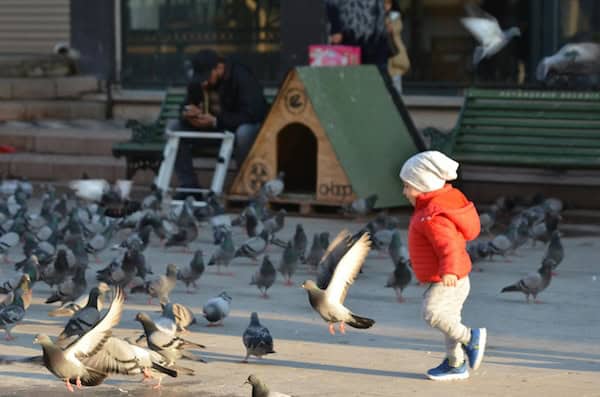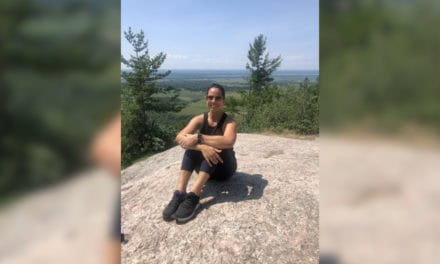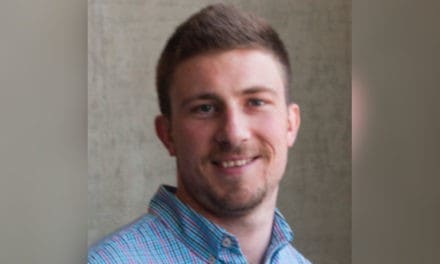Congratulations to Drs Nicholas Kuzik and Mark Tremblay on their recent publication “Nightly sleep duration and symptom burden over 1 month following pediatric concussion” published in JAMA Network Open! The abstract and citation can be found below.
Abstract
IMPORTANCE Approximately half of all youths with concussions report sleep disturbance, including short and long sleep durations, in the first week of recovery. Limited longitudinal research exists regarding the association between sleep duration and symptom burden during acute pediatric concussion recovery. OBJECTIVE To investigate the association between mean nightly sleep duration over 1 week (days 1 to 7) and 2 weeks (days 1 to 14) postinjury and subsequent symptom burden at 1, 2, and 4 weeks following pediatric concussion. DESIGN, SETTING, AND PARTICIPANTS This cohort study used data from a randomized clinical trial conducted in 3 emergency pediatric departments in Ontario, Canada, from March 2017 to December 2019 (with secondary analysis conducted between September 2022 and September 2024). Eligible participants were between ages 10 years and 18 years who received treatment for a concussion within 48 hours. EXPOSURE Sleep postinjury was measured with waist-worn accelerometers 24 hours per day for 2 weeks and daily sleep logs. MAIN OUTCOMES AND MEASURES Symptom burden was measured with the Health and Behavior Inventory at 1 week, 2 weeks, and 4 weeks postconcussion. A nonlinear mixed-effects model was applied that estimated symptom burden at 1, 2, and 4 weeks from mean sleep duration over days 1 to 7 and days 1 to 14. Logistic regressions were performed to assess the odds of being reliably symptomatic at 2 and 4 weeks by mean sleep duration. Conservative (z 1.65) and liberal (z 1.28) definitions of reliable change in symptoms were evaluated. All models compared 10th vs 50th, 25th vs 75th, and 50th vs 90th percentile contrasts, and were adjusted for prognostic pre-injury demographic and baseline injury variables. RESULTS A total of 291 participants (median [IQR] age, 13.2 [11.6-14.9] years; 128 female [44.0%]) were included in the main analysis. Mean nightly sleep duration beyond 9.5 hours in the first week postconcussion was associated with higher symptom burden at 1 week (75th percentile [10.5 h] vs 25th percentile [9.5 h]: estimate, 1.3 [95% CI, 0.25-2.28]; 90th percentile [11.3 h] vs 50th percentile [10.0 h]: estimate, 2.9 [95% CI, 1.22-4.69]). Mean sleep duration beyond 9.9 hours in the first 2 weeks postconcussion was associated with higher symptom burden at 2 weeks (90th percentile [10.9 h] vs 50th percentile [9.9 h]: estimate, 2.2 [95% CI, 0.85-3.47]) and 4 weeks (estimate, 2.2 [95% CI, 0.85-3.47]), and increased odds of persisting symptoms at 4 weeks (conservative: odds ratio [OR], 1.73 [95% CI, 0.91-3.26]; liberal: OR, 1.93 [95% CI, 1.07-3.47]). CONCLUSIONS AND RELEVANCE In this observational study of adolescents, average nightly sleep durations beyond 9.9 hours over the first 2 weeks of concussion recovery were associated with high symptom burden and persistent symptoms. Clinicians should monitor youths’ sleep after concussions.
Citation
Butterfield, L., Zemek, R., Borghese, M. M., Bijelic, V., Barrowman, N., Sicard, V., Kuzik, N., Tremblay, M. S., Yeates, K. O., Ledoux, A. A., & PERC PedCARE team (2025). Nightly Sleep Duration and Symptom Burden Over 1 Month Following Pediatric Concussion. JAMA network open, 8(6), e2516333. https://doi.org/10.1001/jamanetworkopen.2025.16333
Photo by Mert Aslan on Pexels





